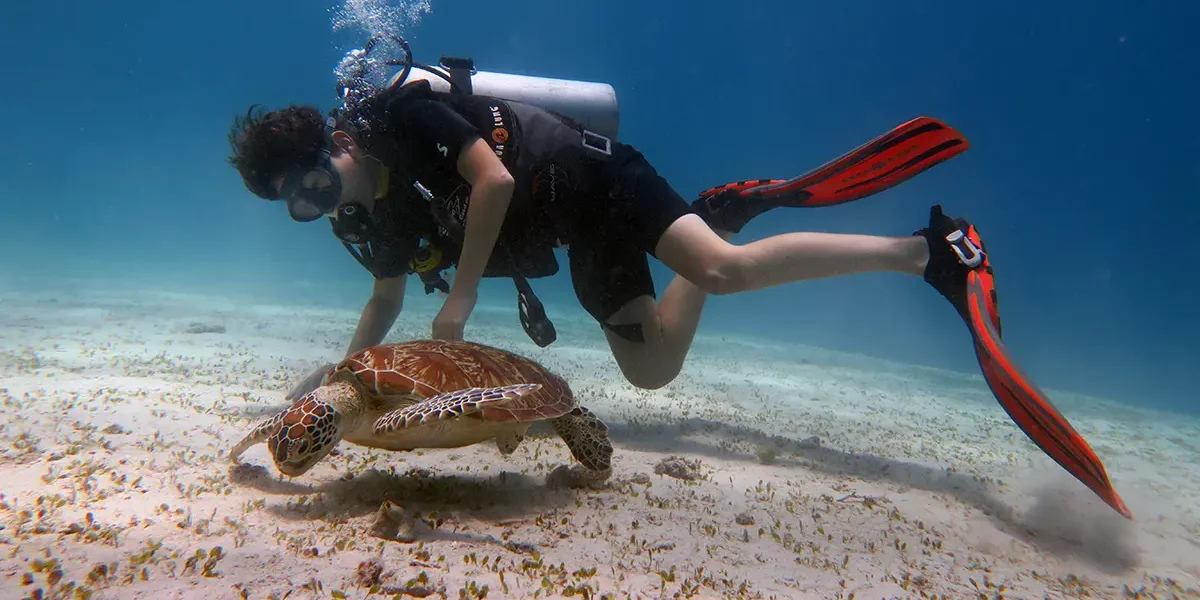The allure of the deep blue sea calls to adventurers of all ages, and for children, the prospect of exploring coral reefs and encountering marine life is especially captivating. Introducing scuba diving for kids opens up a whole new world of underwater exploration, fostering a deep appreciation for marine ecosystems and promoting a sense of responsibility towards their conservation. However, safety and age-appropriateness are paramount when considering scuba diving for kids, ensuring that the experience is both enjoyable and educational. Careful planning, proper training, and the right equipment are crucial elements in making scuba diving a positive and memorable experience for young divers.
Is Scuba Diving Right for Your Child?
Before even considering a dive, it’s essential to assess your child’s physical and mental readiness. Consider these factors:
- Age and Maturity: While some certifications allow children as young as 8 to participate in confined water dives, true open water scuba diving generally requires a higher level of maturity and understanding, often around age 10 or 12.
- Swimming Ability: Children should be comfortable and confident swimmers. They should be able to swim continuously for a reasonable distance, tread water, and float effortlessly.
- Health: A medical evaluation is crucial to ensure your child has no underlying health conditions that could be exacerbated by scuba diving. Conditions like asthma or certain heart conditions may be contraindications.
- Comfort in the Water: Children should feel comfortable and relaxed in the water. Any fear or anxiety about being underwater should be addressed before introducing scuba diving.
Choosing a Reputable Scuba Diving Program
Selecting a certified and experienced instructor is paramount when introducing children to scuba diving. Look for programs that:
- Offer specialized courses for children: These courses are tailored to the specific needs and learning styles of younger divers.
- Maintain small student-to-instructor ratios: This ensures individual attention and close supervision.
- Emphasize safety and responsible diving practices: The program should prioritize safety protocols and teach children about marine conservation.
- Use age-appropriate equipment: Properly fitted gear is essential for comfort and safety.
Confined Water vs. Open Water
Most introductory scuba diving programs for children begin in confined water, such as a swimming pool. This allows them to learn basic skills and become comfortable with the equipment in a controlled environment. Once they have mastered the basics, they may progress to open water dives, but these should always be conducted in shallow, calm waters under the direct supervision of an instructor.
The Benefits of Scuba Diving for Kids
Beyond the thrill of underwater exploration, scuba diving offers numerous benefits for children:
- Increased Confidence: Mastering new skills and overcoming challenges in the water can boost self-esteem.
- Environmental Awareness: Scuba diving provides a firsthand look at marine ecosystems, fostering a love for the ocean and a desire to protect it.
- Physical Fitness: Swimming and diving are excellent forms of exercise.
- Family Bonding: Scuba diving can be a fun and rewarding activity for the whole family.
Introducing your child to the underwater world through scuba diving can be an incredibly rewarding experience. It’s crucial to prioritize safety, choose a reputable program, and ensure your child is both physically and mentally ready. Remember that the goal is to create a positive and memorable experience that fosters a lifelong love of the ocean. To ensure a positive and safe experience, remember to properly prepare your child for their first dive, and they will be well on their way to a lifetime of underwater exploration through scuba diving for kids.

